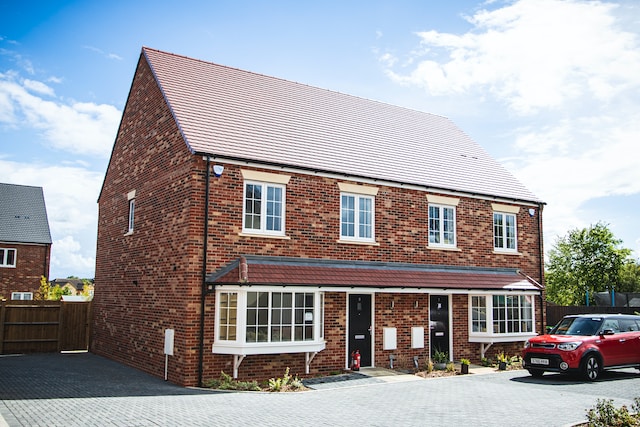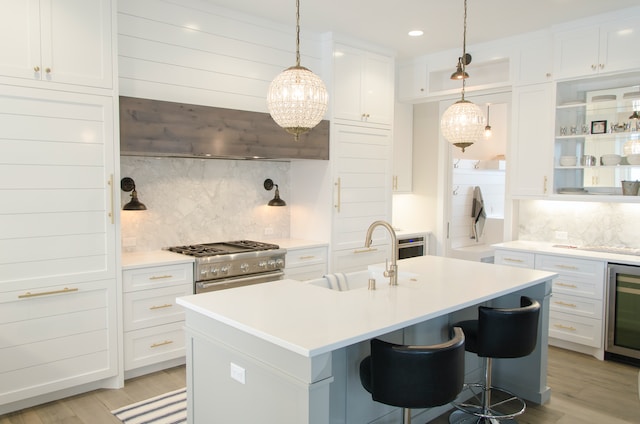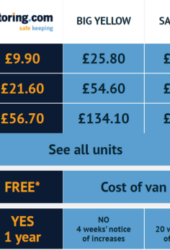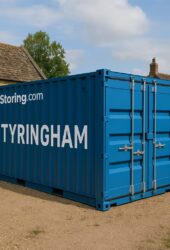In this article we’re going to take a look at what one might consider a ‘decent house’, as well as the potential costs of that kind of property depending on where you live in the UK. We briefly explore different house prices across the UK and learn more about finding a good property for your budget.
Most adults in the UK have an interest in the property market. Whether you’re saving up for your first home, looking to upsize, or simply judging the UK economy on the housing market, it’s always good to stay aware of property prices.
As a potential house buyer, it is particularly important to understand the cost of house prices across the UK, especially if you might be moving to a new region soon. There can be a vast difference between the price in one area and another, and with solid research and good timing you really can save a mint if you buy in the right place.
What Is a Decent House?
What can be considered a decent house is very subjective. It really is unique to the person’s needs and preferences. For one person a characterful cottage with an established garden is worth a lot more than a city apartment with views of the skyline. For another person, they would happily pay a lot more for the city apartment, and would actively avoid even looking for a characterful cottage. Everyone has different tastes and needs.
However, from recent statistics we can get an idea of what many people would consider to be key aspects of a decent house, and they include:
- Energy efficiency features such as double glazing and insulation
- A spacious, functional kitchen
- An attractive bathroom
- Plenty of natural light
- Pleasant green outdoor space/garden
- Good quality flooring
- Smart features
- Off-street or allocated parking
- Electric vehicle charging points
For many people, a property that is well-maintained, ready to move into, and lacking in problems like damp and mould, is considered ‘decent’ as long as it is at a good price when compared with similar properties in the area.
How House Prices Vary Across The UK
Whatever you consider a decent house to be, the fact is that it will be priced differently depending on where it is in the UK. There are huge differences between regions. As a good overview, here are the average house prices across the UK in 2023 according to the Halifax:
| REGION | AVERAGE HOUSE PRICE (2023) |
| London | £536,000 |
| South East | £385,000 |
| East Midlands | £333,000 |
| South West | £301,000 |
| West Midlands | £251,000 |
| Eastern England | £240,000 |
| Northern Ireland | £223,795 |
| Wales | £218,000 |
| Yorkshire & The Humber | £205,000 |
| Scotland | £201,000 |
| North East | £187,000 |
| North West | £169,000 |
Remember, these figures are changeable as the global economy continues to be turbulent and unpredictable.
A Step-by-Step Guide To
BUYING A HOUSE
READ NOW…
Average House Price Comparison in areas of London
| London Borough | Average House Price |
| Kensington & Chelsea | £1,300,000 |
| City Of Westminster | £936,940 |
| City Of London | £931,190 |
| Camden | £842,010 |
| Richmond Upon Thames | £755,970 |
| Hammersmith & Fulham | £754, 960 |
| Islington | £709,550 |
| Hackney | £648,210 |
| Wandsworth | £646,770 |
| Haringey | £615,540 |
| Barnet | £593,230 |
| Merton | £582,130 |
| Brent | £570,390 |
| Kingston Upon Thames | £568,350 |
| Southwark | £557,250 |
| Lambeth | £553,310 |
| Ealing | £543,540 |
| Harrow | £532,040 |
| Waltham Forest | £519,910 |
| Bromley | £518,020 |
| Tower Hamlets | £492,600 |
| Redbridge | £486,020 |
| Hillingdon | £475,840 |
| Lewisham | £466,350 |
| Enfield | £464,990 |
| Hounslow | £460,410 |
| Sutton | £444,230 |
| Greenwich | £443,690 |
| Havering | £435, 990 |
| Croydon | £433,110 |
| Newham | £426,010 |
| Bexley | £408,050 |
| Barking & Dagenham | £356,820 |
Because of a rise in interest rates and residents moving away from inner city London following the pandemic, many central areas like City of Westminster and Chelsea saw a drop in house prices in recent years.
If, as expected, the Bank of England Base Rate remains level throughout 2024 and mortgage interest rates start to fall again, this will likely push house prices in inner city London back up. This predicted market recovery is also set to push all London House prices back up within the next few years.
Average House Price Comparison in areas of the South East
| South East Area | Average House Price |
| Berkshire | £495,000 |
| Buckinghamshire | £493,000 |
| East Sussex | £439,000 |
| Hampshire | £394,000 |
| Isle Of Wight | £321,000 |
| Kent | £395,000 |
| Oxfordshire | £498,000 |
| Surrey | £645,000 |
| West Sussex | £454,000 |
Source – Plumplot
Property prices in the South East tend to be higher than elsewhere in the UK, but still lower than in many areas of London. This makes them a popular option for commuters who want to be able to travel into London in under an hour (from many South East areas) whilst still enjoying the natural beauty and appeal of this beautiful part of the UK. Surrey remains the most expensive area in the South East to buy, as a lack of property available and surge in interest pushes prices up on an almost continual basis year on year.
Additional Factors That Influence the Cost Of A House
The cost of a house in the UK depends on a huge range of different factors. Most of the time the location is key, and properties close to cities, good transport centres of any kind, good schools, areas of outstanding beauty and tourist hotspots will demand a higher price. The size of a house can determine its value too, with bigger properties (or more bedrooms and bathrooms) generally costing more.
The condition of the house is also important in determining it’s value. The more well-maintained it is, the less work needs doing, which means that the potential buyer is likely to pay more. When there are issues with a house, buyers have to account for the cost of fixing them, which greatly devalues the sale price of the house.
Additionally, trends can impact the value of a house. A neighbourhood can become gentrified and trendy, increasing the value of the properties in that area. It may be that open plan houses, or houses with big gardens are more on trend, and so the price of houses with those features will increase. Economic factors are also a big consideration, with recessions, global incidents and other fluctuations causing the overall housing market to ebb and flow. Other additional factors that can influence the value of a house (negatively and positively) include:
- Scenic views
- Ability to upgrade/extend
- Exceptional curb appeal
- Local development plans
- Development permission
- Restrictions on the property (often historical grade houses or houses in conservation areas)
- Neighbour disputes or unsightly houses in the area
- Loud noise pollution nearby like a motorway
- Odour pollution nearby like sewage treatment works
How To Get the Most for Your Money When Buying a Decent House
When you do find a house that ticks all the boxes and that falls into your own definition of ‘decent’ it is still possible to get a good deal for your money.
One way to get a good deal on a house is to consider properties that are in sound condition, but that require some degree of renovation or refurbishment. Clearly, it is important to only buy houses that could be updated within your skill set and budget. However, if you can ‘see potential’ in how the property could become better, you could bag yourself a great deal.
Shared Ownership schemes and Help To Buy schemes are another good way to get a good deal on a house. If you are finding a lot of houses are beyond your budget, this could be how you achieve a decent house purchase.
Additionally, it is important to negotiate in order to get the very best price for the property, too. Even if the house you like is already at a great price, it always pays to make an offer so you can get the very best deal. As long as you are polite and friendly when you negotiate, most house sellers expect you to make an offer.
The only time this may not be the case is if you are putting in an offer on a highly sought after property. In this instance, you may not only find yourself needing to pay full price, but potentially paying over the asking price if you love the house and want to secure the purchase.
BUYING A HOUSE FAQs
Your Frequently Asked Questions
READ NOW…






